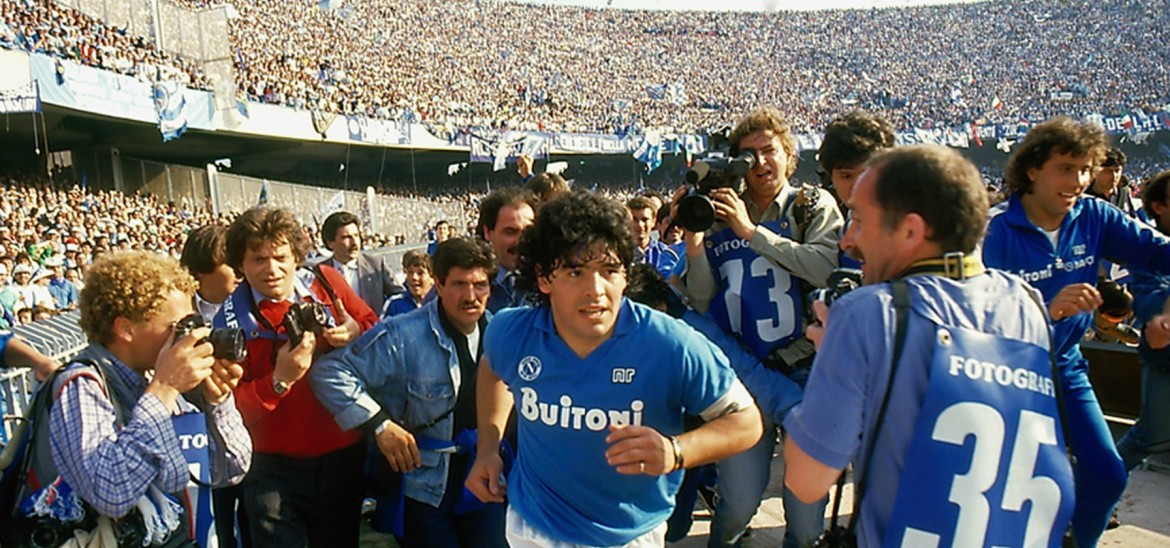Into Film Clubs
Find out everything you need to know about starting an Into Film Club.



British filmmaker Asif Kapadia, director of the fascinating new film Diego Maradona, is now considered one of the leading documentarians in the world. His painstaking use of archive footage, an element which has come to define his work, creates incredibly intimate portraits of icons who have succumbed to the pressures of celebrity and success. Kapadia claims this film is the last in his trilogy on "child geniuses and fame", after 2010's Senna and 2015's Amy, which explored the lives and careers of Formula One Brazilian racing driver Ayrton Senna and British jazz singer Amy Winehouse respectively, both of who died tragically young.
Diego Maradona is just as controversial now as he was at the height of his fame. A sporting sensation from a young age in South America, Maradona became known throughout the world as the greatest footballer on the planet, coveted by many of the world's most distinguished, and wealthy, clubs. Kapadia, however, opts to avoid telling his life story and instead offers a brief snapshot into the seven years he spent in Napoli, one of Italy's poorest cities, a period which he argues encapsulates his larger-than-life personality.
Maradona moved to the Italian club S.C.C Napoli from Barcelona in 1984 as the most expensive football player in the world and transformed the fortunes of the city, both socially and economically, as well as helping them win the first trophies in their history. One of the most skilful football players to ever kick a ball, his brash and uncompromising competitive streak combined with his ability to deceive the referee rendered Maradona a polarising figure on the world stage. As he became more famous and revered by the citizens of Napoli, he also found himself caught up in the criminal underworld and subsequently fathered an illegitimate son whom he refused to associate with.
This film has been almost seven years in the making. Kapadia was approached by sports journalist Paul Robinson in 2012 with the news he had uncovered a "treasure trove" of home-movie footage featuring Maradona. Years later, after securing the rights, the director and his crew still had to sift through over 500 hours of footage from an Italian archive and the stitching together of this huge amount of footage owes a lot to Kapadia's long-time editor and collaborator Chris King (Senna and Amy). King does a fantastic job of constructing a compelling and coherent narrative around what was, at the time, a life being thrown into chaos by the media, the city and the excessive partying that Maradona was engaging in, emphasising his rise to ultra-stardom as the underlying reason for his fall from grace.
Kapadia's documentaries truly excel at making you care about a subject which may have seemed, at first, uninteresting. Senna, for instance, takes place primarily in the world of Formula One racing but is so visually exciting that those who have very little to no interest in the sport are still drawn towards the cinematic nature of the narrative. Amy is a story so tragic and told with such affection that being a fan of her music does not play as big a part in the enjoyment of the film as one would expect. Diego Maradona is no exception, creating a pulsating tale that young audiences, regardless of their feelings towards football, will find as enthralling as any Hollywood film. These are not just stories about music or sport but about extraordinary people and, most importantly, the cost of fame, a universally engaging subject.
In this film, Diego Maradona means something different to everyone. He must be a father and husband to his family whilst being a leader and winner to his team and his city, a pressure which, the documentary argues, led him to a dependency on drugs and alcohol. The local Mafia crime organisation of Napoli, also huge football fans, provided him with everything he wanted but it came at a price Maradona would be at their mercy whenever they requested anything from him as well. Kapadia has said the film is more fitting for the gangster/crime genre than a sports documentary and it is easy to see why as the narrative unfolds.
There are so many visual instances in this film where Maradona is surrounded by a sea of people and cameras. This could be in a room filled with a hungry media, at a party with adoring Italian fans or out on the pitch with thousands of football supporters either cheering him on or verbally abusing him. Despite all this attention, the most striking moments are when the camera focuses on his face, capturing his anxiety or his determination and, occasionally, his fear. Sometimes we can forget that celebrities, even those with reputations like Maradona's, are still people underneath all the fame and glory but Kapadia's film strikes the perfect balance between examining both the icon and the man with genuine empathy.
Diego Maradona is screening now in cinemas around the U.K.
Viewing 4 of 4 related items.

Find out more about our streaming service, designed specifically for UK schools.